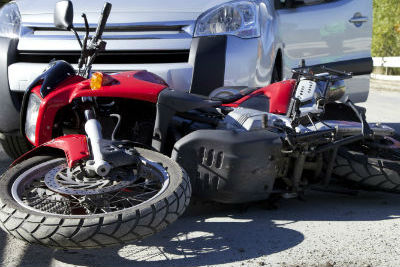
Most road users have a prejudice against motorbikes and presume them guilty of causing an accident even when it is not a motorcyclist’s fault. Even the police don’t make it any easier for them.
More often than not, they will place liability on the motorcyclist unless the motorcyclist can prove otherwise. Unfortunately, most motorcycle accidents result in significant injuries to the rider, meaning the rider will have two things to worry about after an accident, their injuries and potential liability for the other party.
“The first thing that all injured bikers should know is there is a strict time limit to file a claim after an accident. After a motorcycle accident, working with an injury attorney is vital to handling claims promptly to receive compensation and file with insurance companies,” says motorcycle accident lawyer John L. (Lin) McCraw III of the McCraw Law Group.
Who has liability?
Assigning liability follows the same process as any other road accident, meaning several parties may be liable, including the negligent driver, the rider part manufacturer, and state or local governments.
The other driver would be liable if their negligent actions contributed to the accident. Negligence can result from distracted driving, speeding, DUI, tailgating, or failing to allow a motorcycle an entire lane. Any violation of a traffic rule by other road users that results in an accident also constitutes negligence and thus liability.
If you live in a comparative state, some actions or inaction, such as failing to wear protective gear, could see the rider sharing some liability.
Faulty vehicle or road design errors
Sometimes an accident can result from a faulty part in either of the parties involved in an accident. The faulty part maker or the vehicle manufacturer can be held liable in such a case.
To succeed in a defective part injury claim, the parties involved must prove that the accident resulted from a vehicle part malfunction or failure caused by the part’s structural design and had nothing to do with the road user’s actions.
Liability can also fall on governmental bodies involved in the construction and repair of roads if faults in a road’s design or repair works are responsible for the accident.
Adding weight to your case
You can do several things immediately after an accident to help your lawyer’s efforts in proving liability much more effortlessly. These include taking photos and video footage of the accident scene to help capture every detail relating to the incident. Also, collecting witness testimonies and their contacts can be very helpful.
While seeking medical attention may not help prove liability, it should be a priority to ensure you get treatment for your injuries as soon as possible. Medical records come in handy when calculating damages, so it is always good to get yourself checked.
Compensation for motorcycle wreck damages
If you succeed at proving liability for your motorcycle accident, you will be eligible for compensation. A fair settlement must cover all economic and non-economic damages.
Economic damages include all monetary costs accruing from an accident such as property damage, lost wages, ambulance costs, hospital bill, cost of medication, and other costs arising from a change in lifestyle like house modification and hiring a caregiver.
Non-economic damages include damages that may not have a direct financial cost like pain and suffering, disfigurement, disability, loss of life’s enjoyment, and psychological pain. If an accident has an element of gross negligence, the court may sometimes award punitive damages to punish the liable party.










